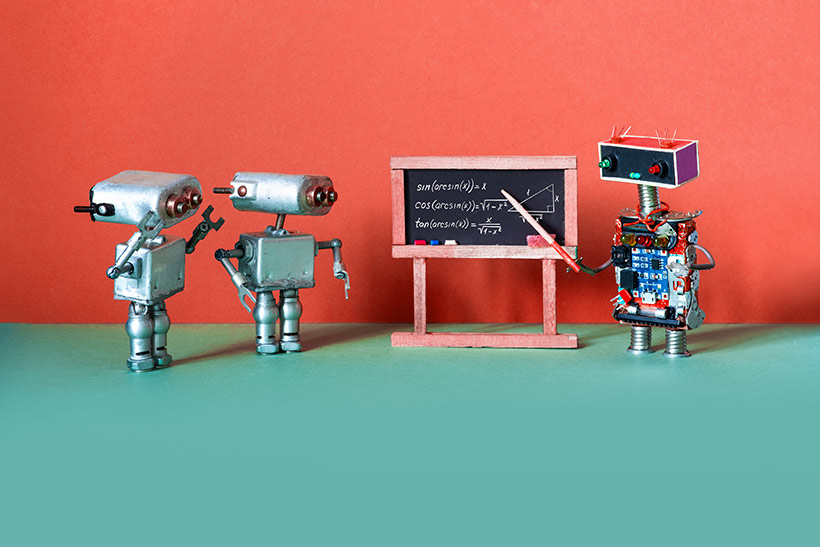4 Reasons Why Technology Makes Us Vulnerable and How to Fix It

Without technology, modern life would be unimaginable. Technology is taking over our lives; we are highly dependent on technology, from regular house chores to large-scale industrial operations.
Since the beginning, our development has relied on the use of tools from the dawn of civilization. Humans have always sought a quicker, more accessible, effective, and convenient method to do tasks; thus, Headaches and impaired vision may demand continuous growth that drives humanity to seek new and better solutions.
Human development is driven by innovation to produce new things; artificial intelligence is one of those. Nowadays, humans don’t have to labor as hard as their ancestors because of modern AI technologies. It helps us to accomplish tasks better, quicker, smarter, and more productively.
Undeniably, today’s modern society is heavily influenced by technological advancements, significantly affecting how society functions. Similarly, when discussing humanity and technology, researchers claim that these technological advances have raised stress levels and social isolation among social community members.
Even though technology offers many benefits, it has also had detrimental effects on society. Therefore, this article mainly focuses on the downsides of technology and concerns how technology is taking over our lives and we can fix them.
How Does Technology Affect Us?
The following section will find four major reasons for how technology is taking over our lives and making us vulnerable, adversely affecting our psychological and physical growth.
Educational Misuse and Poor Intellect
The internet has developed into an excellent learning tool. You can Google every information you need at the comfort of your house rather than visiting a library or enrolling in an academic institution. Yet, technological immersion does not necessarily equate to high-quality education. Students cannot overuse technology in the classroom, which sets them apart from social media apps and other distractive sites. Subsequently, it increases their learning process and social engagement through one-on-one learning opportunities, real-time consultation with the instructor, group, or peer learning, etc.; thus, balancing humanity and technology needs.
Moreover, through technological use, it is becoming more common to plagiarize and cheat than ever before in an educational setting. This threatens to undermine the new generation’s intellect.
Is technology making us dumber? Yes, somehow. Games, chatting, and entertainment video streaming create a distraction. Most of the youngsters prefer amusement or social media scrolling over reading and homework. The more kids utilize entertainment technology like games or social media, the worse their academic performance is. Nevertheless, using the internet to research information leads to better academic scores and higher intellect, whereas gaming or socializing online leads to worse academic performance and lower intelligence.
Physical and Psychological Imbalance
Aside from the intellectual problems associated with technology, physical impairment (such as obesity) is one of the most damaging effects. To avoid being distracted, individuals tend to eat more, work late, and exercise less when a laptop or tablet engrosses them. More time spent in front of a computer reduces blood circulation in the body, resulting in neck and head discomfort.
Furthermore, a sedentary lifestyle is the root cause of many people’s curved backbones and poor posture as a consequence. Headaches and impaired vision may be caused by constant gazing at a computer screen.
Thus, with the relentless use of smart devices and the extensive human dependence on technology, you may be vulnerable to many psychological and physical problems, including eye strain, poor concentration, trouble sleeping, and even abnormal body growth as well.
Threat to Digital Privacy and Security
When technology is utilized inappropriately, it may expose you to a variety of digital vulnerabilities. The extensive human dependence on technology makes them prone to data breaches, information leakages, and many more.
Approximately one in every three adolescents reported being the target of cyberbullying. The perpetrators use text messages, social media, and forums to contact their perceived enemies or targeted victims.
Moreover, online sex crimes are becoming a common occurrence on the internet. Sexting is another potentially dangerous activity that adolescents may be exposed to. According to a recent study in the journal JAMA Pediatrics, 39 percent of adolescents confessed to sending sext messages, while almost half of the youngsters said they had received texts featuring nudity.
Furthermore, cybercrime is on the increase. Since the lines between personal and public information are becoming more eroded, it is now simpler than ever before to breach someone’s privacy. Scammers may use the information they acquire to break into computers and spread malware.
Poor Social skills
An extensive human dependence on technology and its related solutions will likely result in a lack of social skills. Online gaming, Facebook scrolling, WhatsApp chatting, Snapchat, Instagram stories are on-trend among youngsters rather than physical workouts, social meetups.
On the surface, technology seems to build a worldwide network that brings people closer together. However, in practice, this substitutes for real-life communication and results in social isolation. Furthermore, real social ties are being replaced by many superficial “friends” on social media platforms. As a consequence, individuals may experience feelings of loneliness and depression.
When we substitute online communication for face-to-face contact, we lose the capacity to interpret social signals such as tone of voice, facial expression, body language, and directness. On top of that, violent video games and movies sap people’s empathy and cause them to suffer in their daily lives.

How Can We Reduce the Negative Effects of Technology?
It’s impossible to eliminate all technology-related vulnerabilities. However, we can fix its downsides to the best of our capabilities. Some of those techniques may include:
Use VPN to Protect your Digital Privacy
Most of our personal data are available online (or at cloud storage) in the digital era. Therefore, there is a considerable risk of data breaches. In this context, we can protect ourselves by using some vast VPN data encryption techniques.
There is a long list of VPN servers available online. Among them, VeePN is highly recommended by cyber experts. It is a fast and reliable VPN server that can protect all your digitally available data and regularly check the full list of servers and locations associated with your device. You can use its free trial to fix technological vulnerabilities associated with your digital privacy.
Keep a Balance between Humanity and Technology
Due to artificial intelligence and various learning and streaming resources available on the internet, people have begun to read less, do not participate in one-on-one groups or peer learning, and physically meet less, resulting in poor intellect, poor social skills, and many psychological, physical imbalances. It can be resolved by actively participating in hands-on workshops, seminars, efficient and engaging classroom/team activities, etc.
However, social skills can be improved by participating in more physical activities such as gym, jogging, sports, exercises, cycling, pooling, etc., with family, friends, and colleagues.
































































































